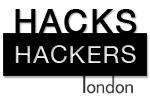Journalism archaeology of the internet - Wendy Grossman on copyright, Scientology, and a world without search at Hacks/Hackers London

I wasn’t able to make last night’s Hacks/Hackers London, which is a shame, as it is always a great night, I’ve always enjoyed seeing Heather Brooke speak, and it would have been brilliant to catch up with the BBC’s George Wright who I used to work alongside in Bush House many moons ago. George has published his slides about the BBC’s R&D department. Seeing all the tweets reminded me that, for one reason or another, I never got round to posting my notes from last month’s Hacks/Hackers. So here they are...
Wendy M. Grossman at Hacks/Hackers London
“I’ve only just realised, that 20 years ago, when I first wrote about the internet, is actually a long time ago now”
Wendy M. Grossman was talking at Hacks/Hackers London about the circumstances surrounding the battle between the Church Of Scientology and “the internet” in the early 1990s. At lot of people, she said, don’t realise that much of our “take-down” framework for dealing with copyright infringement on the web comes, not from the lobbying of the RIAA or the MPAA, but from the attempts to remove “secret” Scientology document from servers and USENET. “Copyright terrorists” was how the Scientologists described those posting the documents.
It was fantastic to delve into the archaeology of the early web, and Wendy’s talk was sprinkled with brilliant little asides and anecdotes. “It was well known”, she said, for example, “the the University of Delft had the best online collection of porn”, to the extent that demand for it ended up knocking their web infrastructure offline.
Wendy’s essay about the Church’s activity on the net is still available online. One of the things that Church realised early on was that the internet would be a battleground for opinion, and could be manipulated. In a pre-cursor to the phenomena of “astroturfing”, a leaked letter from Elaine Siegel set out the aims:
“Siegel identified herself as writing from the Office of Special Affairs International, which former insiders say is the church’s security branch. Addressed to Scientologists on the Net, the letter suggested flooding the Net with positive messages about Scientology as a counter to criticism posted. It said, in part, ‘If you imagine 40 to 50 Scientologists posting on the Internet every few days, we’ll just run the SPs right off the system. It will be quite simple.’ She ended with, ‘I would like to hear from you on your ideas to make the Internet a safe space for Scientology to expand into.’”
The Church took legal action to try and remove specific documents from the web, claiming them to be “trade secrets”. As Wendy put it: “I don’t think any of the Christian religions have tried to claim the Bible is a trade secret.”
Nevertheless, the point was that the case was going to be tried in a court of law using an intellectual property framework - not in some interstellar realm of higher justice.
Wendy described some of the inventive ways that people used the early web to preserve their anonymity, and to track down others. She talked about software being written to track when messages were yanked from Usenet - although the content of the messages would be gone, an audit trail of the conversation remained. The notorious AOL installation discs that flooded America at that time could be used to set up disposable email addresses.
It was fascinating listening to Wendy describe the intersection between journalists, technology and the audience at such an embryonic stage. She’d been attracted to the story because she knew the net was full of sci-fi fans, full of sceptics, and full of Scientologists, and it looked like something interesting was bound to happen. “You have to be patient” she said though, and really conveyed the sense that in a world before search engines, being a journalist on the web required an awful lot more cunning and digging around than simply lifting a pretty dead teenager’s pictures off her Facebook profile, or typing “fat dog” into Flickr.
Next...
Tomorrow I’ll have my notes from Chris Sumner’s talk about using tools to map social networks across the web, and what that means for information security and digital journalists.
And, talking of Hacks and Hackers, today we are having a Hack Day at the Guardian, and I’m helping to run a live blog of the event. You can follow it here.
“Hacks/Hackers London: Notes from the talks” brings together notes from 16 talks, including those from Martin Rosenbaum, Stephen Grey, Alastair Dant, Scott Byrne-Fraser and Wendy Grossman. It looks at topics of interest to journalists and programers alike, including freedom of information, processing big data sets to tell stories, social activism hack camps, the future of interactive technologies, and using social media to cover your tracks - or uncover those of somebody else.
“Hacks/Hackers London: Notes from the talks” for Kindle is £1.14.
